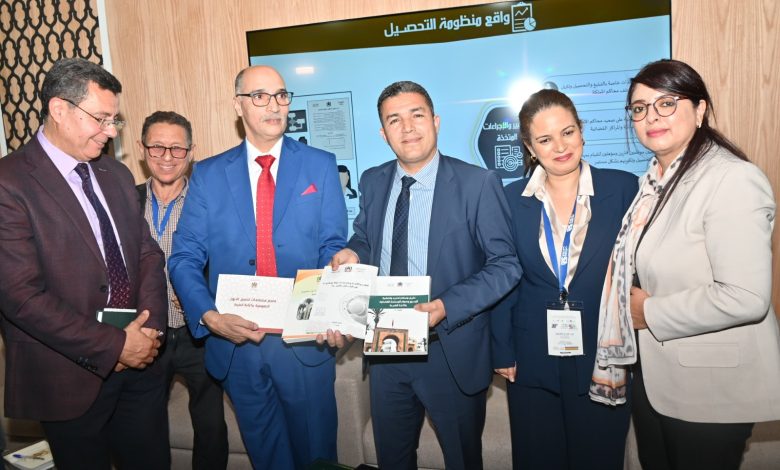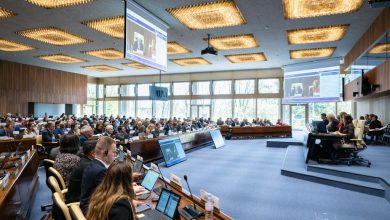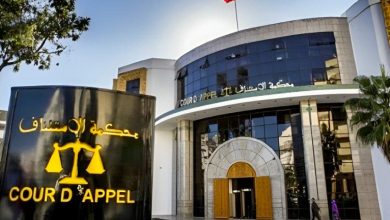The Ministry of Justice organizes a scientific meeting on the theme on the third day on the theme “Perception of fines: paths and evolution”.

This article was automatically translated from HIBAPRESS, the Arabic version:
Hibress-rabat-mj
On Sunday April 20, on the third day of the 30th edition of the International Book Fair in Rabat, the Ministry of Justice hosted a scientific meeting on the theme “Fines recovery: tracks and development”, led by Mr. Hassan El Kbab, director of the budget, accompanied by Mr. Moulay El Hassan Rizki, head of the reciprocation of the same direction.
At the start of his intervention, the director recalled that the mission of recovering fines, pecuniary convictions, royalties and legal costs has become a jurisdiction of the clerks, with the Commissioners of the Treasury, on the basis of article 14 of the 1993 finance law, which modified article 673 of the old code of criminal procedure, replaced by article 633 of the current code of criminal procedure was also accompanied by the creation of a special account, currently called “the Special Fund for the Support of Courts”, which is fueled by the income of fines and financial sanctions imposed by the courts, as well as by legal costs and expenses, to specific percentages, on the basis of the requirements of article 22 of the 2011 financial law establishing this account, and the share of the Ministry of Justice is affected by and the renovation of court buildings and other expenses related to the support provided for in said article.
He noted that since the allocation of this task to the clerks, they have deployed great efforts to communicate and execute judicial decisions of any kind, thus helping to give credibility to these decisions and to preserve their authority, in addition to the establishment of legal and judicial certainty and the increase in revenue of the Treasury.
In this context, the Ministry of Justice, since the assignment of clerks to the recovery of these public claims, and within the framework of its efforts aimed at implementing the relevant legal provisions which would dissuade offenders and would ensure legal effectiveness, has taken a series of measures, the most important of which are:
The creation of notification and recovery units and the establishment of their structure in the various courts of the kingdom;
The training of local committees at the level of appeal lessons, first instance courts and legal centers;
The appointment of competent and qualified staff to perform notification and recovery tasks;
The provision of various logistical means necessary to improve working conditions and the motivation of staff (utility vehicles, motorcycles, information software, etc.);
Several projects related to electronic performance;
The preparation and download of a procedure manual for the recovery of public receivables to the registry, a glossary of terms and a procedure manual.
These procedures and measures made it possible to improve the efficiency of recovery, which contributed to increasing the revenues of fines and pecuniary convictions in significant proportions, since the revenues of fines and pecuniary convictions during the period between 2020 and 2024 recorded an upward trend, after the decrease recorded in 2020 due to the impact of the exceptional epidemiological situation that From 55% in 2021, reaching their highest levels in 2024, since the secretariat was in charge of the recovery process, with a total of 568,674,324 Dirhams, while the total income of public debts in the courts (fines, monetary convictions, legal costs and judicial services) increased in 2024 to more than one billion dirhams.
In order to continue the efforts, the Directorate of the Budget of the Ministry of Justice works on a number of important programs which will reduce the volume of non -recovered claims, to increase legal efficiency linked to the execution of court decisions, to increase state resources and to ensure judicial security.







